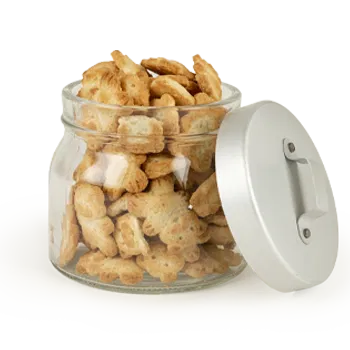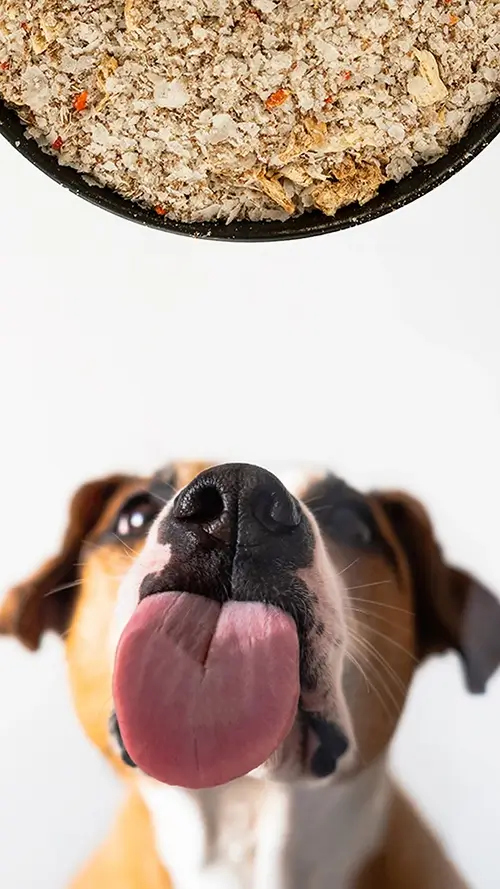Since 1999, Grandma Lucy’s has been passionate about helping pets live their healthiest lives. Through our charitable initiative, Project PetRAK, we’ve proudly supported pet-focused organizations for over 20 years. In recent years, co-founder Breann Shook was moved to focus on service dogs after one of her sons, Hunter, was diagnosed with Autism. Seeing a classmate's service dog transform his daily life sparked a mission to support these incredible animals and the freedom they provide.
That’s why we are thrilled to announce our new partnership with Firefly Meadow Service Dogs as their official food sponsor! Starting in April 2025, we are providing monthly shipments of our 3 Bears dog food to support the breeding dogs and comfort canines at the heart of their organization. This food donation makes it possible for founder and president Chelsea Patenaude to dedicate their resources to raising and training their new litter of future service dogs.
We sat down with Chelsea to find out more about her, and what inspired her to dedicate her life to training service dogs.

How did you become involved with training service dogs?
Chelsea: “I’ve lived a life surrounded by animals. My college career at SUNY Cobleskill opened many possible paths to working with dogs who have always won my heart. I have found the most fulfillment in training these intelligent animals to connect with people in need. My initial experience involved a loved one who was diagnosed with Lou Gehrig’s Disease. I was determined to learn how “man’s best friend” could potentially help with balance, going to find help, or alert to different medical events. I know canines can make a difference in a life that needs a different way to independence.”

Tell us more about Firefly Meadow Service Dogs, and how it began.
Chelsea: “Firefly Meadow Service Dogs Inc. is a dream fulfilled. I founded FMSD in 2023 and we worked diligently to become a nonprofit operation. We currently are a woman-led organization committed to the breeding, raising, and training of service dogs who will be headed to serve in many facets of the canine service industry depending on each animal’s unique skills and temperament. It became apparent early on that service dogs are most successful when training begins right from day one, and even before. Our adult dogs are chosen for genetics, temperament, and health. When puppies arrive, they are presented with experiences to help them explore their world and grow their self-assurance. Our puppies grow, play, and learn at our puppy nursery. They stay with us for one year, then graduate to another organization that best fits their individual strengths.”

Where are you located? Can you tell us about the facility?
Chelsea: “Our breeding and volunteer center can be found in the quiet town of Argyle, New York. This piece of Heaven is situated on ten acres of land that allows for ample space to let our dogs explore and spend time fulfilling their needs. We currently have a puppy nursery that consists of a whelping area for mom and puppies as well as a separate fenced-in outdoor section for play. Our next goal is to expand our operation by building a kennel that will not only house our training dogs, but also have all the necessary amenities they need to learn. We would have a fully functioning kitchen, to teach dogs to open and close drawers, the fridge and turn on the lights. A handicap button would also be installed so we could practice pushing buttons while at home, before taking the skill out into the field. With the help of donations, we hope to fulfill this dream within the next five years.
A small satellite location in Northfield, Connecticut also exists where some of our dogs receive training with our Executive Director and Trainer, Rebecca Mann.”

What type of service dogs do you train?
Chelsea: “Our business model is unique in the fact that our dogs can be trained and used for a multitude of needs. While we acknowledge the strengths of each breed we are using, every dog’s individual desires become apparent as they are working. Our Golden Retrievers tend to really navigate towards people and seek out those that need them. Therefore, many of them may be used as facility, therapy, or courtroom dogs. Our German Shepherd Dogs have an incredible sense of smell, so we aim to work them with medical alert tasks in mind. And lastly, our Labradors seem to be an all-around dog that could excel with veterans, or those with neurodivergent needs.”

Is there a team of people to care for and train the dogs, or is it just you?
Chelsea: “FMSD is currently an operation of two women. We are navigating our way through the care and training of all our dogs, but also the other aspects of being involved with a nonprofit. Now that we have a litter of puppies in our program, we are adding volunteers to help with some of the socializing and care of puppies in the nursery. We will also implement a “Home Handler” program, where vetted families can take a service dog puppy-in-training home for the weekend. As we expand, we hope to add more trainers and professionals to help aid in finding funding.”

What is the timeline for training a dog at your facility? Are there stages of the training process?
Chelsea: “Each dog that is bred at FMSD will be in our training program for approximately a year. We hope to instill every dog with 80 to 100 commands, as well as public access before they move on to their next stage in training. This will help aid bigger organizations in providing quality custom-trained dogs for the thousands of people waiting, that much faster. It typically takes two full years to complete the necessary steps to becoming a fully qualified service animal, so we are hoping to jump-start this process. We will partner up with other non-profit organizations across the country to finish the second year of specialized training for each dog.”
How do you identify a dog or a litter of dogs as a good candidate for training?
Chelsea: “Identifying a good candidate for training first starts with the dog’s genetics. We specifically picked each of our breeding dogs with certain traits in mind. And while we understand outliers and genetics aren’t necessarily linear, there is a higher probability of gaining those qualities with superior males and females.
Once a litter is born, we immediately start Early Neurological Stimulation as well as Early Scent Introduction to get a jump start on some of our training down the road. From there, the next few weeks consist of exposure and socialization. We want our puppies neutral to all stimuli, whether it’s loud noises, other dogs, or fast-moving objects. As the dogs grow, we look for confidence, ability to recover from something that startles them, as well their desire to work. It’s important to us to honor that every dog learns at a different pace, just like kids. So once all the basics are introduced, we follow the lead of the dog.”

How can someone find out more information about applying for a service dog for themselves?
Chelsea: “There are many resources out there to locate information about applying for a service dog. The first step would be to identify the type of service dog you might be looking for and what tasks they would need to perform based on the needs of their future human partner. It’s important to mention that a service animal might not be the right solution for everyone’s disability. Once you have identified the specific tasks a dog would perform for their handler, I would simply start with an internet search for that disability. There are organizations that are specific to need, for example, only providing autism service dogs, or only providing service dogs to veterans, etc. Looking at each organization with the goal of enhancing a handler’s safety and independence is the most important piece of the puzzle.”
We are deeply grateful to Firefly Meadow Service Dogs for the life-changing work they do—empowering individuals like Hunter to live with greater independence, safety, and confidence. At Grandma Lucy’s, it’s an honor to fuel these incredible service dogs with the same love and care they give to others, through monthly donations of our all-natural, nutritious meals. Supporting Chelsea’s mission is a true privilege, and we look forward to walking alongside her in 2025 as she continues to change lives—one extraordinary dog at a time.

How you can support Firefly Meadow Service Dogs:
Donate directly to the nonprofit organization:
The average cost of a service dog after training, veterinary services, food, supplies and other miscellaneous expenses is around $25,000. All donations received are being poured right into these amazing animals. You can donate here to help support their mission.
Volunteer if you’re local to Argyle, NY:
Chelsea and her team could always use help around the kennels, and would love more volunteers to help socialize the puppies in their homes over the weekend. To find out more, and to apply to volunteer, visit their website here.






















